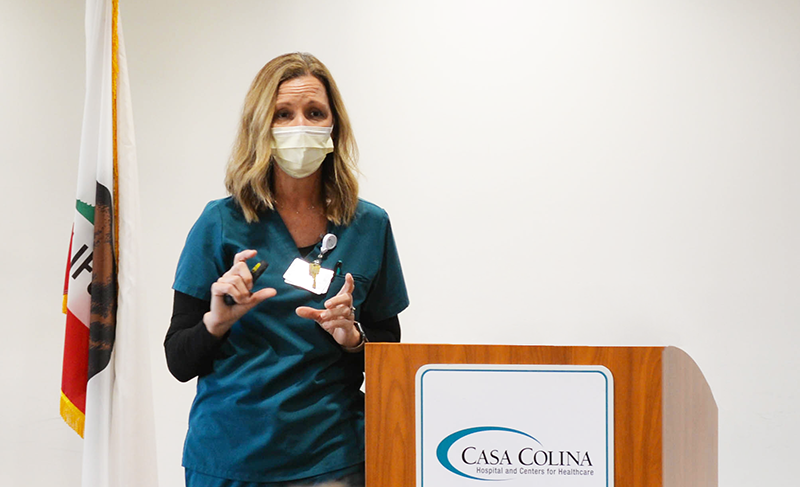My Specialty
Spine Program Nursing, Stephanie Johnstone, Casa Colina
Guiding patients through treatment options, surgery, and recovery

Stephanie Johnstone, RN, BSN
Nurse Navigator Spine Program
Casa Colina Hospital and Centers for Healthcare, Pomona
Tell us about your career trajectory.
I’ve been a nurse for about 10 years, but my first career was in information technology (IT). I earned a bachelor’s degree in business and a master’s degree in information systems along with my associate and bachelor’s degrees in nursing.
Despite my interest in IT, I always had a desire to also work in medicine. My original plan was to go into nursing informatics, but in the course of my nursing education, I discovered how much I love working hands-on with patients!
I began my nursing career in oncology and hematology before coming to Casa Colina. In oncology, I had the opportunity to work with many patient navigators, so that gave me a solid foundation.
Since March 2022, I have served as the nurse navigator for the Spine Program at Casa Colina Hospital. I also oversee the clinical aspects of the program, with the goal of eventually earning Joint Commission certification.
Describe the spine program for us.
Our comprehensive Spine Program has a group of seven independent neurosurgeons who provide surgical services to patients 18 and older. There’s a wide range of conditions that can lead to spine surgery and a variety of surgical techniques, making each procedure truly unique.
Patient navigation and education are key to producing the best possible patient outcomes, so I reach out to the patient as soon as the surgery is scheduled to start the navigation process.
I offer spine education classes for our patients that cover what to expect preoperatively, postoperatively, and during recovery. I also screen patients to see if they have any special needs, either preop or postop, in order to prepare them for surgery.
Postoperatively, I reinforce education and interventions such as walking and the use of a brace, mobility aid, or incentive spirometer. I provide motivation and support to both the patient and family. Empowering patients to participate in their own healing process consistently leads to more positive outcomes.



